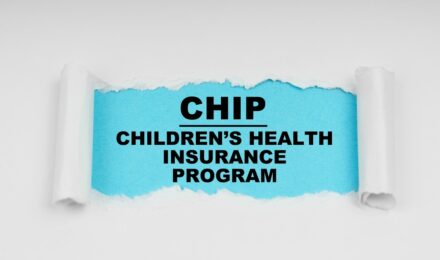Contents
The Foundation of Early Childhood Education
The early years of a child’s life shape the foundation for future success. Access to quality education during this time is essential. Early Childhood Education Programs, such as Head Start, play a crucial role in reducing educational disparities. They ensure every child, regardless of socioeconomic background, gets a strong start. These programs are transformative tools that uplift communities and empower families.
What is Head Start?
President Lyndon B. Johnson launched Head Start in 1965 during the War on Poverty. This federally funded program promotes school readiness for children from low-income families. It provides much more than education by including health, nutrition, and parental support. This comprehensive system ensures children are prepared to thrive in all areas of life.
Key Components of Head Start
- Education: Tailored curriculums encourage cognitive, emotional, and social development.
- Health Services: Regular screenings, immunizations, and healthcare access protect children’s well-being.
- Parental Engagement: Workshops and leadership opportunities empower parents to contribute meaningfully to their children’s growth.
Benefits of Early Childhood Education Programs
Early Childhood Education Programs offer far-reaching benefits. For children, these programs spark curiosity, build literacy, and strengthen social skills. Families gain valuable support through parenting workshops and nutritional advice. On a broader level, these programs increase graduation rates, develop a skilled workforce, and disrupt cycles of poverty. Isn’t this a powerful investment?
Eligibility and Access
Head Start primarily serves families with incomes at or below the federal poverty line. Additional eligibility criteria include homelessness, foster care, or receiving public assistance like TANF or SSI. Families must complete a detailed application and provide documentation, such as proof of income and residency. While the process takes effort, the rewards are undeniably worthwhile.
Challenges in Access
Despite its promise, Head Start faces hurdles. Limited funding often leads to long waitlists, leaving eligible families without support. Rural communities encounter barriers like transportation and limited program availability. Addressing these challenges requires innovative solutions. Isn’t it time to act and ensure all families can benefit?
The Role of Policy and Advocacy
Federal and state policies heavily influence Early Childhood Education Programs. Advocacy groups continue to push for increased funding, better teacher training, and more integrated services. Recent legislative initiatives aim to expand access and address growing demand. Action is essential to create sustainable change. What better time than now?
Understanding and supporting initiatives like Head Start ensures every child has the chance to thrive. This is not only about education but also about equity and opportunity. Together, we can build a brighter future for everyone.
Resources
- National Head Start Association (NHSA) — Find comprehensive information about programs, policies, and advocacy efforts.
- Child Care Aware of America — Access resources about child care and early education programs nationwide.
- Administration for Children and Families (ACF) — Explore federal programs, including Head Start, designed to support children and families.
Contents
The Foundation of Early Childhood Education
The early years of a child’s life shape the foundation for future success. Access to quality education during this time is essential. Early Childhood Education Programs, such as Head Start, play a crucial role in reducing educational disparities. They ensure every child, regardless of socioeconomic background, gets a strong start. These programs are transformative tools that uplift communities and empower families.
What is Head Start?
President Lyndon B. Johnson launched Head Start in 1965 during the War on Poverty. This federally funded program promotes school readiness for children from low-income families. It provides much more than education by including health, nutrition, and parental support. This comprehensive system ensures children are prepared to thrive in all areas of life.
Key Components of Head Start
- Education: Tailored curriculums encourage cognitive, emotional, and social development.
- Health Services: Regular screenings, immunizations, and healthcare access protect children’s well-being.
- Parental Engagement: Workshops and leadership opportunities empower parents to contribute meaningfully to their children’s growth.
Benefits of Early Childhood Education Programs
Early Childhood Education Programs offer far-reaching benefits. For children, these programs spark curiosity, build literacy, and strengthen social skills. Families gain valuable support through parenting workshops and nutritional advice. On a broader level, these programs increase graduation rates, develop a skilled workforce, and disrupt cycles of poverty. Isn’t this a powerful investment?
Eligibility and Access
Head Start primarily serves families with incomes at or below the federal poverty line. Additional eligibility criteria include homelessness, foster care, or receiving public assistance like TANF or SSI. Families must complete a detailed application and provide documentation, such as proof of income and residency. While the process takes effort, the rewards are undeniably worthwhile.
Challenges in Access
Despite its promise, Head Start faces hurdles. Limited funding often leads to long waitlists, leaving eligible families without support. Rural communities encounter barriers like transportation and limited program availability. Addressing these challenges requires innovative solutions. Isn’t it time to act and ensure all families can benefit?
The Role of Policy and Advocacy
Federal and state policies heavily influence Early Childhood Education Programs. Advocacy groups continue to push for increased funding, better teacher training, and more integrated services. Recent legislative initiatives aim to expand access and address growing demand. Action is essential to create sustainable change. What better time than now?
Understanding and supporting initiatives like Head Start ensures every child has the chance to thrive. This is not only about education but also about equity and opportunity. Together, we can build a brighter future for everyone.
Resources
- National Head Start Association (NHSA) — Find comprehensive information about programs, policies, and advocacy efforts.
- Child Care Aware of America — Access resources about child care and early education programs nationwide.
- Administration for Children and Families (ACF) — Explore federal programs, including Head Start, designed to support children and families.






